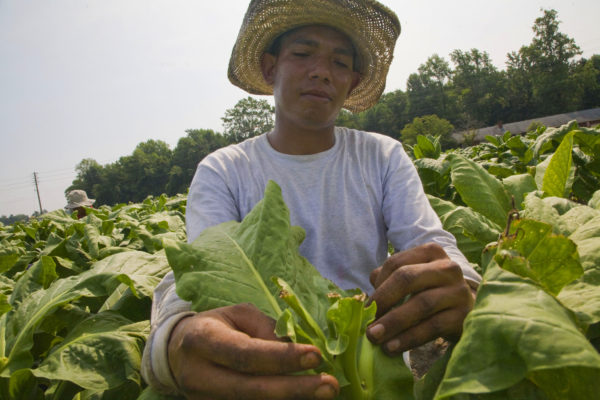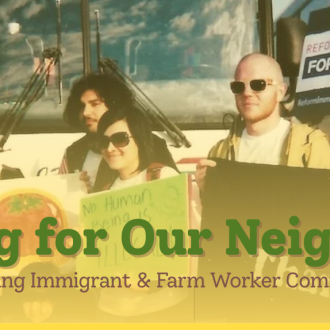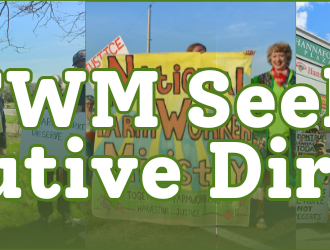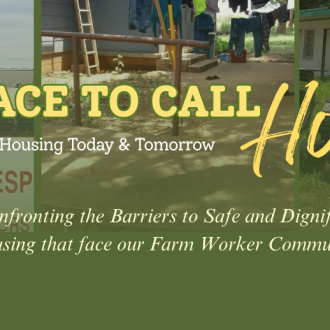Background
Farm work is hard work. Farm workers perform repetitive picking motions, bend over for hours at a time, lift heavy buckets of produce, and operate machinery like tractors, pesticide applicators, and fruit pickers that can lead to mishaps and injuries on the job.
For these and other reasons, agriculture is one of the most dangerous occupations in the United States. According to the Centers for Disease Control and Prevention, 410 farmers and farm workers died from a work-related injury in 2019, resulting in a fatality rate of 18.6 deaths per 100,000 workers.
Heat Stress
In addition to physically demanding labor and dangerous machinery, heat and sun exposure make agricultural work especially dangerous. When farm workers work all day without taking adequate water or shade breaks, they face heat-related illnesses such as heat exhaustion, heat stroke, dehydration, and even death. Pregnant women and workers with pre-existing conditions are even more vulnerable to heat stress.
Among farm workers, heat stroke is the leading cause of work-related death. According to the Centers for Disease Control and Prevention, farm workers die from heat-related illness at a rate 20 times greater than the rest of the U.S. civilian workers. From 1992-2017, excessive heat exposure killed 815 U.S. workers and seriously injured over 70,000. However, these numbers have been historically underreported, and governmental institutions no longer record the number of deaths from year to year. But with heat waves increasing in length and intensity, researchers believe heat-related illnesses will also increase if not properly addressed.
By law, the only state that requires water and shade breaks is California. Washington, California, Oregon, and Colorado currently have regulations to protect agricultural workers from extreme heat. However, even in California, these laws do not do enough to protect workers. In 2016, the Cal/OSHA agency reported that only about 74 percent of the agricultural employers complied with the Heat Illness Prevention standard. Many states, such as Texas, have made it difficult for smaller municipalities to make heat-stress related laws for their citizens. Furthermore, because farm workers usually get paid by the quantity of produce they harvest, they face economic pressure to skip shade or water breaks in order to earn more money.
Although night work helps reduce the extreme heat’s impact on the body, it also presents many challenges, such as poor visibility, no childcare options for families, and increased vulnerability for women. Read more about the challenges of night work.
Read more about farm workers and heat stress
 Green Tobacco Sickness
Green Tobacco Sickness
In addition to exposure to the hot sun, sometimes even the crops that farm workers harvest can make farm workers sick. For instance, tobacco harvesters face a unique type of nicotine poisoning called Green Tobacco Sickness (GTS). When workers come in contact with wet tobacco leaves, they can absorb large amounts of tobacco through their skin. Some people may have experience with nicotine poisoning as a result of overusing tobacco, but GTS is uniquely intense and dangerous
According to one study, “Moisture on tobacco leaves from dew or rain may contain as much as 9 mg of dissolved nicotine per 100 ml of dew, roughly equivalent to the nicotine content of six average cigarettes. On a humid day, especially after a recent rain, the average fieldworker may be exposed to as much as 600 ml of dew.” This is equivalent to nearly two cigarette cartons worth of nicotine.
Green Tobacco Sickness is characterized by nausea, vomiting, weakness, dizziness, and sometimes an increase in blood pressure and heart rate. In a vicious cycle, because exposure to high levels of nicotine increases body temperature, tobacco farm workers are even more vulnerable to heat related illness and heat stroke.
Toxic Pesticides
A rampant problem amongst the majority of farm workers is exposure to toxic chemicals from pesticides. Pesticides—chemicals used to kill pests such as insects, weeds, fungi, or even rodents—are sprayed onto agricultural crops to combat infestations and increase crop production. Pesticide exposure is linked to all kinds of medical and health issues, including but certainly not limited to reproductive problems, birth defects, Alzheimer’s, diabetes, cancer, autism, and memory loss. Women are especially vulnerable to the damaging effects of pesticide exposure.
Farm workers and families face pesticide exposure both directly and indirectly. Directly, farm workers can get sprayed while they’re picking crops, and they can also be made to re-enter the fields prematurely after the fields have been sprayed, thus getting unsafely exposed to high levels of pesticides. Indirectly, workers may come in contact with items or people which were themselves sprayed with pesticides. Because of housing inadequacies, farm workers often have no escape from exposure even outside of the field as pesticides can literally follow them home after work in the form of residue on their clothes. Pesticide drift can also contaminate the air in their neighborhoods.
Pesticide exposure amongst farm workers is an issue of environmental injustice. It’s one thing to worry about eating a piece of produce that’s been sprayed with pesticides; farm workers are exposed to pesticides all day long, without the choice or ability to avoid exposure, and without a voice in the decisions about pesticide rules and regulations that directly affect the health of their bodies and families.
For this reason, farm workers and environmental justice organizations are leading campaigns to document cases of pesticide exposure, ban the use of some of the most dangerous pesticides that are actively used in this country, and educate others about the danger of pesticide exposure and its effects on farm worker communities.
Health Care
The dangerous nature of agricultural work creates a disproportionate number of work-related health concerns for farm workers as compared to other jobs. These include the multiple medical conditions surrounding arduous manual labor, heat and sun exposure, and pesticide-related illnesses. Farm workers lack preventative healthcare and, unfortunately, they also face disproportionately large hurdles in accessing the health care they need. In North Carolina, 85% of farm workers do not have insurance for health care.
Documentation status can prevent workers from accessing healthcare. Ineligibility for some programs, fear and discrimination caused by immigration status, and lack of information can all be factors in the inaccessibility of healthcare. Farm workers and migrant health professionals report a lack of awareness of available health services, along with confusion in navigating healthcare providers and public insurance programs. This leads to farm workers waiting until their health problems are unbearable to seek medical attention.
Transportation is another issue. According to a study by Health Outreach Partners, 67% of those surveyed from at-risk populations reported lack of transportation as the biggest barrier to accessing healthcare. Only 20% of families have their own means for transportation. Because many farm workers live and work in rural communities, they have little to no options for public transportation, meaning that they could not access healthcare facilities even if they were eligible.
One workable solution to the lack of health care is for farm workers and their families to gain benefits under a union contract. This is often the case when the United Farm Workers of America (UFW) and other unions negotiate a collective bargaining agreement. For instance, under the 2018 UFW/D’Arrigo contract, 1,550 D’Arrigo employees in the Salinas and Imperial Valleys gained a family medical, dental and vision plan, 100-percent covered by the company.
This victory and others like it demonstrate the possibility of better access to healthcare for farm workers. We know that healthy eating can improve our health, and we should fight for the health and safety of farm workers who bring healthy foods to our table!
An Issue of Justice
Farm workers work hard in the fields to support themselves and their families as well as to put food on our plates and support our billion-dollar agricultural industry. As they feed Americans, four out of ten farm workers can not afford to feed their families. They deserve access to medical services that address their multiple work-related health concerns. Additionally, farm workers deserve stronger workplace protections, such as water and shade breaks and protection from pesticides.
Read more about farm workers and heat stress




